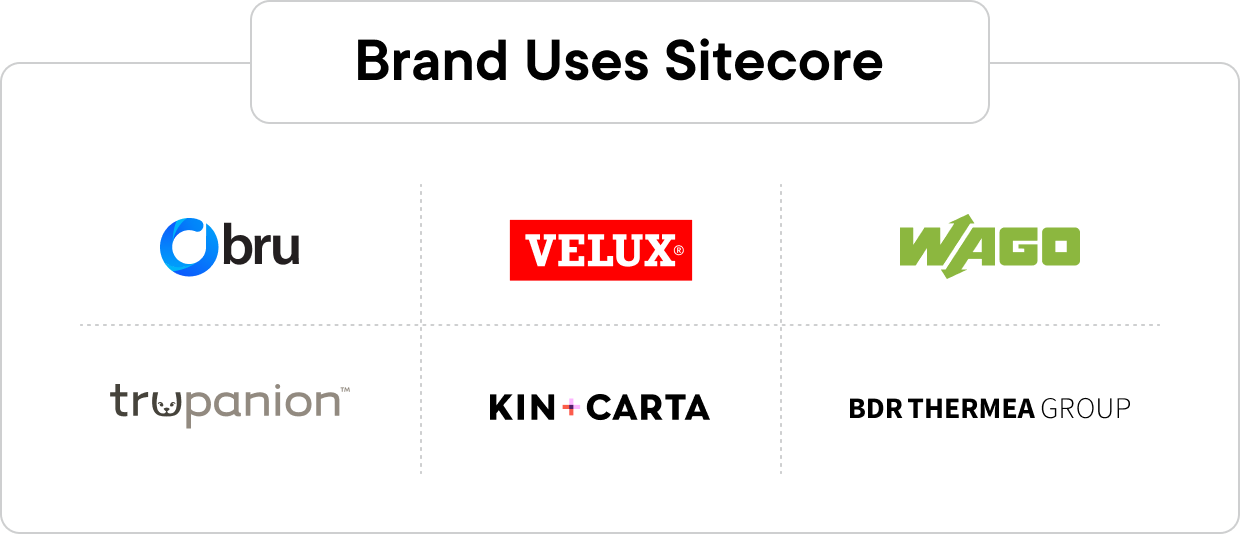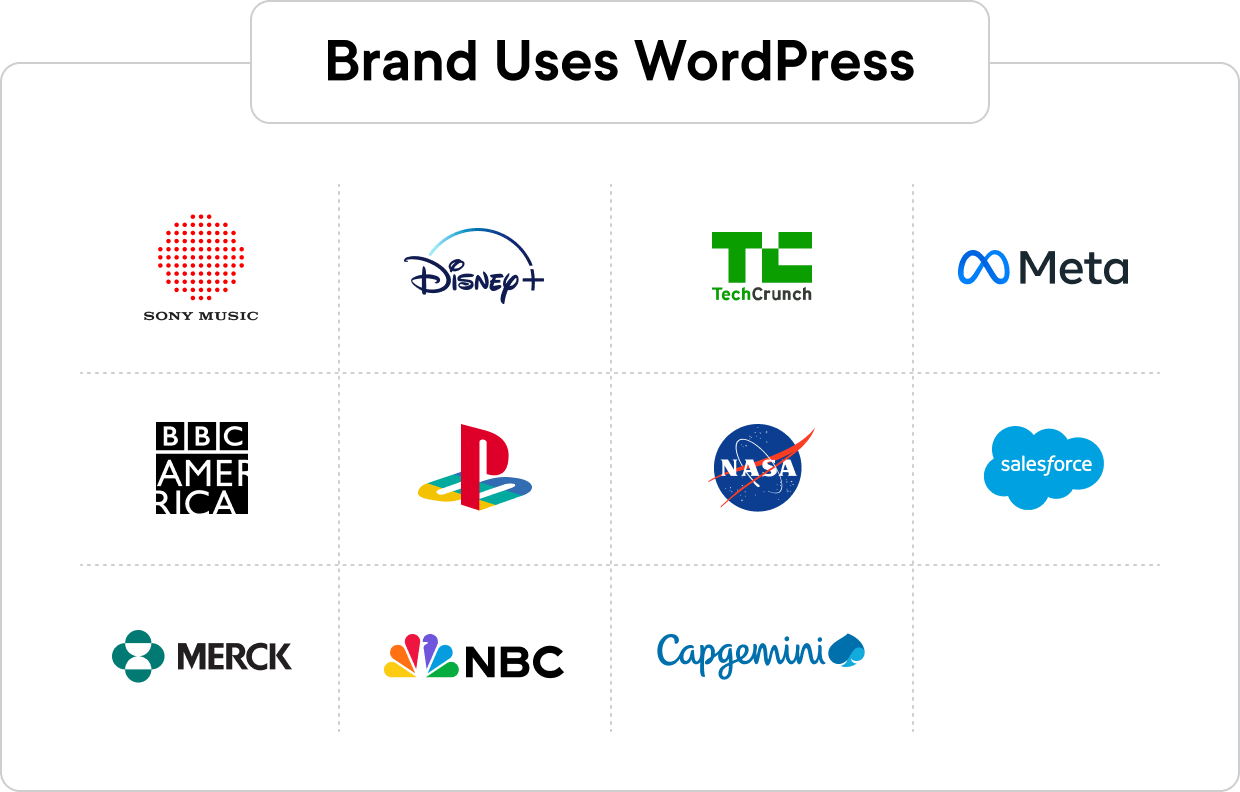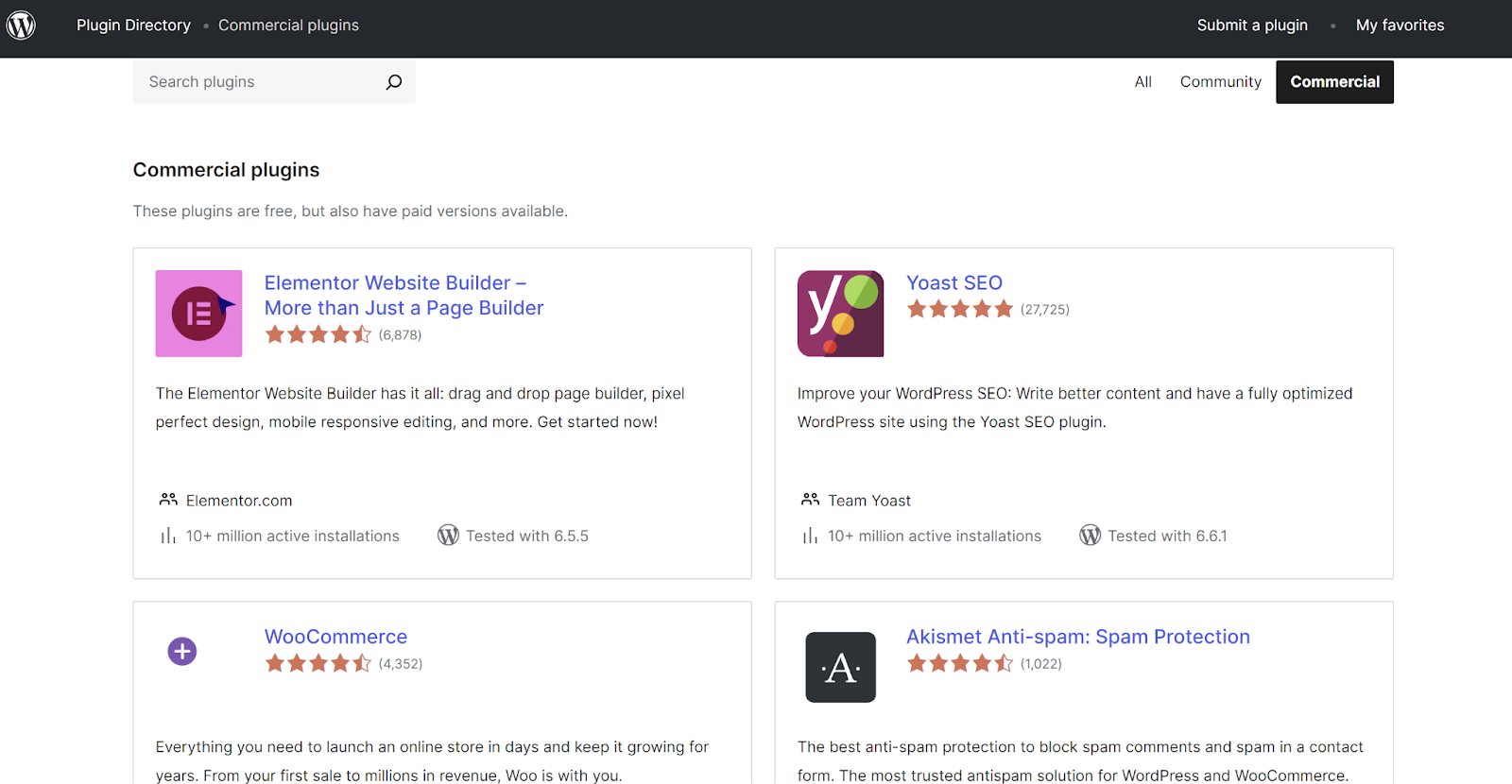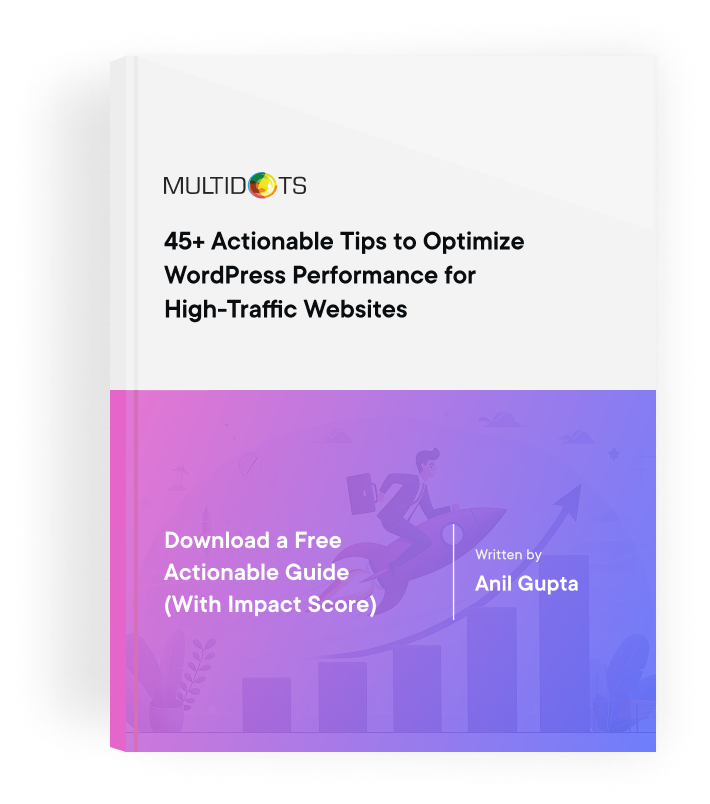Sitecore vs WordPress: Which Enterprise CMS Platform is Right for You?
Compare Sitecore and WordPress to find the ideal enterprise CMS platform that fits your organization’s requirements

Table of Contents
As an enterprise, your choice of CMS not only defines how well your team manages website content and its delivery but also how well you can reach and engage your audiences.
WordPress is the most popular open-source CMS known for its ease of use, flexibility, and extensive community support. It caters to a broad spectrum of users, from small bloggers to large enterprises, offering a plethora of themes and plugins that streamline site building and customization.
On the other hand, Sitecore is a proprietary, subscription-based platform combining content management with digital marketing tools. It's designed for enterprises that require a robust, scalable solution that offers deep analytics, automation, and the ability to personalize user experiences.
Both platforms serve distinct needs and scales of operations, but the choice between Sitecore vs WordPress isn’t as straightforward as you might think.
In this guide, we’ll juxtapose these two popular enterprise CMS platforms so you can make a more informed decision about the right CMS for your business.
What is Sitecore?
Sitecore is a powerful enterprise-level content management system that combines content management with in-depth digital marketing tools and analytics.
Launched in 2001, it's designed for large organizations that require advanced customization and the ability to personalize user experiences at scale. Sitecore helps marketers and technologists collaborate on a single CMS to strengthen customer connections.
However, it has a fairly steep learning curve, which can require significant training and resources to manage effectively. Additionally, Sitecore's licensing and implementation costs can be prohibitively expensive, especially for smaller enterprises or those with limited budgets.

What is WordPress?
WordPress is a highly flexible and user-friendly open-source content management system.
Since its launch in 2003, WordPress has established itself as the biggest player in the CMS market, renowned for its robustness and flexibility. As an open-source platform, it provides endless customization possibilities with its extensive range of themes and plugins. Known for its ease of use and performance prowess, WordPress caters to large enterprises, big media publishers, and eCommerce brands. Its strong community support continues to drive its evolution, meeting the changing needs of its vast user base.

Sitecore vs WordPress: What the Numbers Say
In terms of market share, the WordPress vs Sitecore showdown has an unambiguous winner: WordPress.
As of 2024, WordPress remains the leading CMS, utilized by 43.5% of all websites globally. Its prominence is especially marked in the enterprise sector, where it supports 36% of the top 1 million websites by traffic, showcasing its consistent growth and widespread adoption across various industries.
Whereas Sitecore is used by less than 0.1% of all the websites whose CMS is known. It powers around 20,000 websites and roughly 0.47% of the top 1 million websites by traffic.
Why Choose WordPress over Sitecore?
Despite Sitecore's enterprise focus, many organizations opt for WordPress or migrate from Sitecore due to its straightforward content management system, which simplifies the editorial process. WordPress excels in scalability, performance, and SEO capabilities, all crucial for large-scale operations.
With the right hosting solutions like WordPress VIP, its platform facilitates faster deployment and efficient management of high-traffic sites. Moreover, WordPress is more cost-effective, making it accessible to a broader range of businesses, from emerging startups to established enterprises. This combination of performance, ease of use, deployment speed, and cost efficiency makes WordPress a compelling choice for many organizations.
The Traits of an Ideal Enterprise CMS Platform
An ideal enterprise CMS balances performance and scalability with ease of use and support so enterprise teams can function efficiently. Here are the essential traits to take into consideration when comparing Sitecore vs WordPress:
Easy to Use: The CMS should feature an intuitive interface that allows users of all skill levels to manage and publish content efficiently, enhancing productivity and reducing reliance on specialized staff.
Customizable and Flexible: It should offer extensive customization options to adapt the platform to specific enterprise workflows and branding requirements. This includes a broad range of themes, plugins, and APIs for seamless integration with various systems.
Highly Secure: Security is critical, especially for enterprises handling sensitive information. The CMS must include advanced security features like robust authentication methods, data encryption, and frequent security updates to protect against vulnerabilities.
Superior Performance: The CMS must ensure fast loading times and the ability to handle large volumes of traffic without downtime, utilizing tools such as caching, content delivery networks (CDN), and efficient database structuring.
Scalable: Scalability is crucial; the system should grow with the enterprise, accommodating increases in content, traffic, and users without compromising performance.
SEO and Marketing-Friendly: The CMS should support SEO best practices and integrate easily with marketing tools, enhancing enterprise visibility with features like SEO-friendly URL structures and social media integration.
Active Community and Support: A robust support network is essential for resolving issues and fostering platform evolution. An active community that contributes to plugins, themes, and updates, along with dedicated support, ensures that the enterprise receives timely help when needed.
Checking off these traits ensures that your enterprise CMS not only supports complex, high-traffic websites but also offers an agile, secure, and intuitive platform aligned with your business goals.
Next, let’s dig into our detailed comparison of Sitecore vs WordPress, assessing each trait head-to-head.
Sitecore vs WordPress: A Category-Wise Comparison
Here’s a thorough assessment of Sitecore vs WordPress in terms of all the areas we touched upon in the previous section.
1. Ease of Use
WordPress is renowned for its user-friendly interface, which is intuitive and straightforward, making it accessible for users of all skill levels. The WordPress dashboard is clearly organized, facilitating easy navigation and management of content.
In contrast, Sitecore offers a more complex interface that provides robust functionality tailored for digital marketers and large enterprises, which can be overwhelming for new users without a technical background.
The learning curve for new users is significantly steeper in Sitecore due to its sophisticated features designed for deep customization and integration, ideal for targeted marketing and comprehensive content strategies.
WordPress, on the other hand, is easier for beginners to grasp, with many resources available for learning, such as community forums, detailed guides, and tutorials, making it a more approachable platform for those new to CMS.
2. Customization and Flexibility
WordPress is celebrated for its vast array of customization options that cater to a wide variety of needs through themes and plugins. You can easily change the aesthetic and functional aspects of your website by choosing from over 12,000 free themes and 59,000 plugins. This extensive ecosystem enables everything from simple design tweaks to adding complex functionalities like e-commerce, SEO, and security enhancements, making WordPress adaptable for rapid deployment and scalability to meet complex business requirements with ease.

While Sitecore also offers robust customization features like advanced content management capabilities and the xConnect feature for data integration, implementing these features typically requires more time, resources, and professional expertise. And although Sitecore is highly effective for tailored enterprise solutions, it may present limitations in customization flexibility compared to WordPress, especially when rapid deployment or cost efficiency is a priority.
So, both platforms provide robust tools for customization and flexibility, with WordPress focusing on user-friendly modifications and Sitecore offering advanced features, albeit with limitations, for complex enterprise environments.
3. Ownership Costs
Sitecore, with its enterprise-focused offerings, operates on a licensing model that can be costly, with prices varying based on the scale of the deployment and specific features required. This often makes Sitecore a significant investment primarily suited for large businesses that need its advanced capabilities.
WordPress, on the other hand, is open-source and free to use, which significantly reduces initial costs. The main expenses associated with WordPress come from hosting, purchasing premium themes or plugins, and hiring developers for customization.
The cost of developing a website can vary greatly between the two platforms. WordPress typically incurs lower development costs due to the abundance of resources and developers. Maintenance costs for WordPress are generally manageable but can increase with the use of multiple plugins and custom features.
For Sitecore, development and maintenance require a higher level of investment due to the need for specialized developers and the complex nature of its system, which can also affect the scalability costs. Scaling a Sitecore site often requires more extensive infrastructure and expertise compared to WordPress.
Overall, Sitecore's enterprise-focused licensing structure often makes it cost-prohibitive for many organizations, particularly smaller enterprises or those with limited budgets. In contrast, WordPress offers a more budget-friendly approach with a significantly lower cost of ownership. This financial accessibility makes WordPress an attractive option for enterprises of all sizes, enabling them to leverage a powerful CMS without the hefty investment often associated with enterprise-grade solutions like Sitecore.
Use our free Sitecore Vs WordPress Cost Comparison Calculator to better understand the approximate cost of developing and owning your enterprise-grade WordPress website.
4. Security Features
Despite its open-source nature, WordPress maintains high security standards through its active community support and transparency. Regular updates to the core, themes, and plugins, coupled with numerous specialized security plugins, help safeguard against vulnerabilities like malware and brute force attacks. The open-source model allows for continuous monitoring and quick response to security threats by a global network of developers.
As a closed-source, enterprise-grade CMS, Sitecore offers robust built-in security measures, including advanced user authentication and protection against threats like XSS and SQL injection. While these integrated security features are strong, Sitecore's closed-source model can limit the speed of vulnerability detection and resolution, as it relies on internal teams rather than community-driven efforts.
That being said, while WordPress is generally secure, its popularity makes it a frequent target for cyber-attacks, and maintaining security can be challenging with the vast number of third-party plugins and themes. Sitecore's security is tightly integrated and less reliant on external additions, which typically makes it more secure out of the box.
But again, because of its complexity, Sitecore requires more specialized knowledge to ensure all features are used securely. And in contrast to the open-source WordPress where a global developer community collaborates to strengthen security, Sitecore depends solely on internal security protocols and updates issued by the vendor. This reliance on in-house measures can make it more challenging to quickly mitigate risks when vulnerabilities are discovered by external threats.
Overall, both platforms have strong security capabilities, each platform offers substantial security capabilities, but WordPress showcases how an open-source framework can achieve high security through collaborative efforts and widespread support.
5. Performance and Scalability
When hosted on enterprise-grade solutions like WordPress VIP, which are specifically tailored for high-traffic sites, WordPress delivers optimal performance that surpasses all other CMSs. Solutions like WordPress VIP are engineered to maximize efficiency, leveraging advanced caching, content delivery networks (CDNs), and specialized infrastructure to ensure that WordPress sites operate at peak performance, even under significant load.
Sitecore, built with enterprise needs in mind, excels in managing large-scale operations and high traffic without sacrificing performance. Its architecture supports extensive customizations that can enhance its ability to scale efficiently.
An example of WordPress scaling successfully can be seen in large sites like TechCrunch, which handles millions of monthly visitors smoothly using a combination of caching and CDN services. Sitecore's scalability is exemplified by organizations like the American Red Cross, which manages vast amounts of data and traffic spikes during emergencies, showcasing Sitecore’s robust capabilities in real-world, high-demand scenarios.
Thus, both CMS platforms offer strong performance and scalability features, with Sitecore providing more out-of-the-box solutions for large enterprises while WordPress via its enterprise-level hosting like WordPress VIP, achieves unparalleled performance tailored to the needs of large-scale businesses.
6. SEO and Marketing Capabilities
WordPress is renowned for its extensive SEO plugins, like Yoast SEO and All in One SEO Pack, which provide comprehensive tools for optimizing content, generating sitemaps, and managing meta tags directly from the dashboard. These plugins make it easy for users to implement SEO best practices without needing deep technical knowledge.
Sitecore also offers robust SEO capabilities, but its approach integrates SEO within the platform's architecture, focusing on scalability and customization. It includes SEO features like URL management, meta-data customization, and analytics integration, allowing for a more tailored SEO strategy.
So, WordPress supports SEO effectively through user-friendly plugins that guide users in enhancing visibility and driving traffic. Sitecore, while requiring a bit more technical expertise, provides powerful tools for enterprises that need a more integrated approach to SEO as part of a broader digital marketing strategy.
In terms of marketing capabilities, WordPress excels with its wide array of plugins designed for marketing purposes. Tools like HubSpot, Mailchimp for WordPress, and MonsterInsights allow marketers to integrate email marketing, analytics, and CRM directly into their sites. The platform is also favored for its social media integration capabilities, making it easy to connect and automate social media postings and interactions.
Whereas Sitecore's marketing capabilities are deeply integrated into its CMS. It offers advanced marketing features like real-time personalization, automated marketing campaigns, customer segmentation, and detailed analytics. Sitecore’s Experience Database (xDB) allows for collecting and analyzing customer interactions, providing insights that can be used to tailor marketing strategies effectively.
To sum up, both platforms support a broad range of SEO and marketing integrations, but their approaches differ. WordPress provides easy-to-use plugins that fit seamlessly into any marketing strategy with minimal setup. Sitecore, on the other hand, offers more sophisticated tools that are integrated into the CMS, allowing for a more centralized and data-driven marketing approach.
WordPress is ideal for enterprises seeking straightforward, plugin-based marketing tools, while Sitecore is better suited for enterprises that require robust, integrated marketing solutions to drive complex campaigns and personalized user experiences.
7. Support and Community
WordPress is known for its extensive support network, which includes a large repository of documentation, forums, and community-run help sites, as well as professional services from developers worldwide. The platform benefits from a broad range of tutorials, guides, and videos tailored to all levels of users.
Sitecore offers a more limited support framework through official channels, including technical support, training sessions, and a knowledge base provided directly by Sitecore. This professional support is particularly focused on enterprise-level clients and is structured to assist large organizations in maximizing their CMS capabilities.
The WordPress community is one of the largest and most active in the tech world, fostering a collaborative environment that drives the continuous development and refinement of the platform. This community contributes to an ever-growing array of themes, plugins, and widgets.
Sitecore's community, while smaller, is highly specialized, consisting of certified developers and large-scale business users. It provides resources like developer forums, official conferences, and certified training programs that are invaluable for professionals working in enterprise environments.
In summary, WordPress offers a broad, highly accessible support and community network, while Sitecore focuses on providing targeted, professional-grade support and resources for enterprise clients.
How WordPress Wins: A Quick Case Study
WordPress consistently demonstrates its advantages over Sitecore in the enterprise CMS landscape, primarily through its flexibility, ease of use, and cost-effectiveness. It offers extensive customization options with a vast array of plugins and themes, which simplifies integration and enhances user experience without the high costs associated with proprietary, closed-source software like Sitecore.
Migrating to WordPress from Sitecore can significantly reduce costs while increasing content management efficiency. WordPress's user-friendly interface allows non-technical team members to handle updates and changes directly, reducing reliance on IT staff and speeding up content delivery.
For example, in a notable migration handled by Multidots, a billion-dollar global automotive manufacturer moved 20 websites from Sitecore to WordPress. This shift resulted in a 35% reduction in total ownership costs and vastly improved the editorial team's ability to update content in real-time. The migration utilized WordPress’s Gutenberg editor to enhance the content management process, making it more intuitive and efficient.
If you’re currently on Sitecore and considering a similar transition, collaborating with an experienced WordPress agency like Multidots can streamline your Sitecore to WordPress migration process, ensuring a smooth transition with minimal disruption.
Sitecore vs WordPress: The Verdict
If you’ve read so far, you now know about the differing capabilities of Sitecore and WordPress.
Sitecore offers robust enterprise features, ideal for large-scale, personalized digital experiences and comprehensive data integration. WordPress, on the other hand, is celebrated for its user-friendliness, extensive customization options through plugins and themes, and a vibrant community that supports an array of enterprise needs at a lower cost.
For organizations prioritizing cost-efficiency, ease of use, performance, scalability, and extensive customization, WordPress is a compelling choice. It suits a wide range of business sizes and types — from eCommerce to publishing houses — with a proven track record of success in various industries and applications.
If you’re considering transitioning to WordPress, partnering with an experienced agency like Multidots can ensure a smooth and effective migration, leveraging the platform's benefits without disrupting business operations.
Get in touch with us to learn more.
Sitecore vs WordPress: FAQs
-
WordPress support is community-driven with extensive forums, tutorials, and a wealth of third-party resources. For enterprise-level needs, WordPress VIP offers tailored support, including expert code review and 24/7 access to WordPress engineers, ensuring high performance and security. Sitecore’s support, meanwhile, is structured and professional, with formal training, dedicated account managers, and direct support services, ideal for large organizations requiring a hands-on approach for their complex systems.
-
WordPress is widely used across various businesses, from small startups to large enterprises, due to its flexibility and ease of use. Sitecore, with its robust features and scalability, is typically used by larger organizations that need advanced data integration and personalization capabilities.
-
Sitecore offers comprehensive digital experience management with advanced personalization and marketing automation. WordPress VIP provides a high-performance hosting solution with robust security and enterprise-grade support, focusing on large-scale WordPress implementations. It provides additional services such as expert support, automated cloud hosting, and maintenance. WordPress VIP is best suited for businesses that require guaranteed uptime, high traffic management, and enterprise-grade security while still benefiting from the flexibility and ease of use of the WordPress ecosystem.
-
Developing and maintaining a website with Sitecore generally incurs higher costs due to its complex infrastructure and licensing fees. WordPress can be more cost-effective, with many free plugins and themes, though costs can rise with premium options.
-
Yes, migrating from Sitecore to WordPress is feasible and can be advantageous for reducing costs and increasing ease of use. It requires careful planning to ensure data integrity and functionality are maintained during the transition.
-
Both platforms support multilingual websites, but WordPress, with plugins like WPML, tends to be more user-friendly and cost-effective for creating multilingual sites. Sitecore offers powerful in-built multilingual support ideal for complex global enterprises.
Feel free to schedule a quick call with our migration expert.
Contact Us
